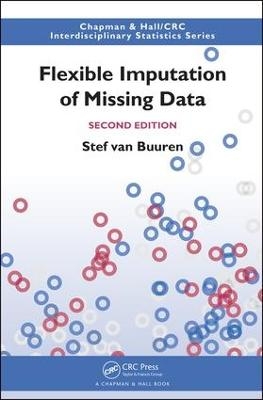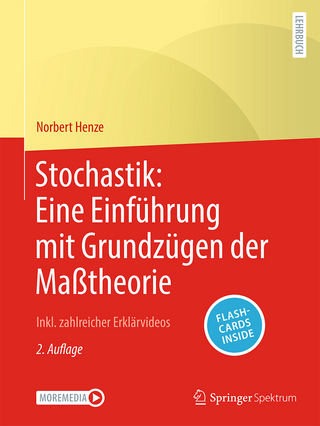
Flexible Imputation of Missing Data, Second Edition
Seiten
2018
|
2nd edition
CRC Press (Verlag)
978-1-138-58831-8 (ISBN)
CRC Press (Verlag)
978-1-138-58831-8 (ISBN)
Missing data pose challenges to real-life data analysis. Simple ad-hoc fixes, like deletion or mean imputation, only work under highly restrictive conditions, which are often not met in practice. Multiple imputation replaces each missing value by multiple plausible values. The variability between these replacements reflects our ignorance of the true (but missing) value. Each of the completed data set is then analyzed by standard methods, and the results are pooled to obtain unbiased estimates with correct confidence intervals. Multiple imputation is a general approach that also inspires novel solutions to old problems by reformulating the task at hand as a missing-data problem.
This is the second edition of a popular book on multiple imputation, focused on explaining the application of methods through detailed worked examples using the MICE package as developed by the author. This new edition incorporates the recent developments in this fast-moving field.
This class-tested book avoids mathematical and technical details as much as possible: formulas are accompanied by verbal statements that explain the formula in accessible terms. The book sharpens the reader’s intuition on how to think about missing data, and provides all the tools needed to execute a well-grounded quantitative analysis in the presence of missing data.
This is the second edition of a popular book on multiple imputation, focused on explaining the application of methods through detailed worked examples using the MICE package as developed by the author. This new edition incorporates the recent developments in this fast-moving field.
This class-tested book avoids mathematical and technical details as much as possible: formulas are accompanied by verbal statements that explain the formula in accessible terms. The book sharpens the reader’s intuition on how to think about missing data, and provides all the tools needed to execute a well-grounded quantitative analysis in the presence of missing data.
Stef van Buuren is a statistical consultant at the Netherlands Organisation for Applied Scientific Research TNO in Leiden with a broad knowledge of quantitative issues in public health. Since 2015, Van Buuren holds is the world's first Professor of Missing Data at the department of Methodology & Statistics, FSS, University of Utrecht. He is the originator of various new statistical tools.
1. Introduction 2. Multiple imputation 3. Univariate missing data 4. Multivariate missing data 5. Analysis of imputed data 6. Imputation in practice 7. Multilevel multiple imputation 8. Individual Causal Effects 9. Measurement issues 10. Selection issues 11. Longitudinal data 12. Conclusion
| Erscheinungsdatum | 19.09.2018 |
|---|---|
| Reihe/Serie | Chapman & Hall/CRC Interdisciplinary Statistics |
| Zusatzinfo | 35 Tables, black and white; 76 Line drawings, color; 76 Illustrations, color |
| Verlagsort | London |
| Sprache | englisch |
| Maße | 156 x 234 mm |
| Gewicht | 915 g |
| Themenwelt | Mathematik / Informatik ► Mathematik ► Wahrscheinlichkeit / Kombinatorik |
| Naturwissenschaften ► Biologie | |
| ISBN-10 | 1-138-58831-8 / 1138588318 |
| ISBN-13 | 978-1-138-58831-8 / 9781138588318 |
| Zustand | Neuware |
| Haben Sie eine Frage zum Produkt? |
Mehr entdecken
aus dem Bereich
aus dem Bereich
Buch | Softcover (2024)
Springer Spektrum (Verlag)
CHF 62,95
Eine Einführung in die faszinierende Welt des Zufalls
Buch | Softcover (2024)
Springer Spektrum (Verlag)
CHF 55,95


